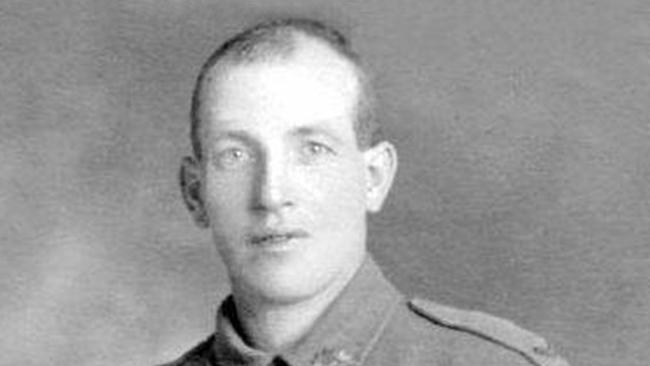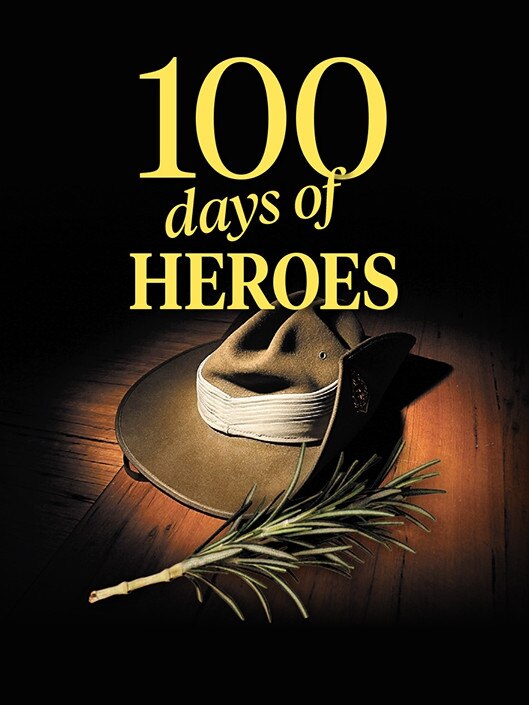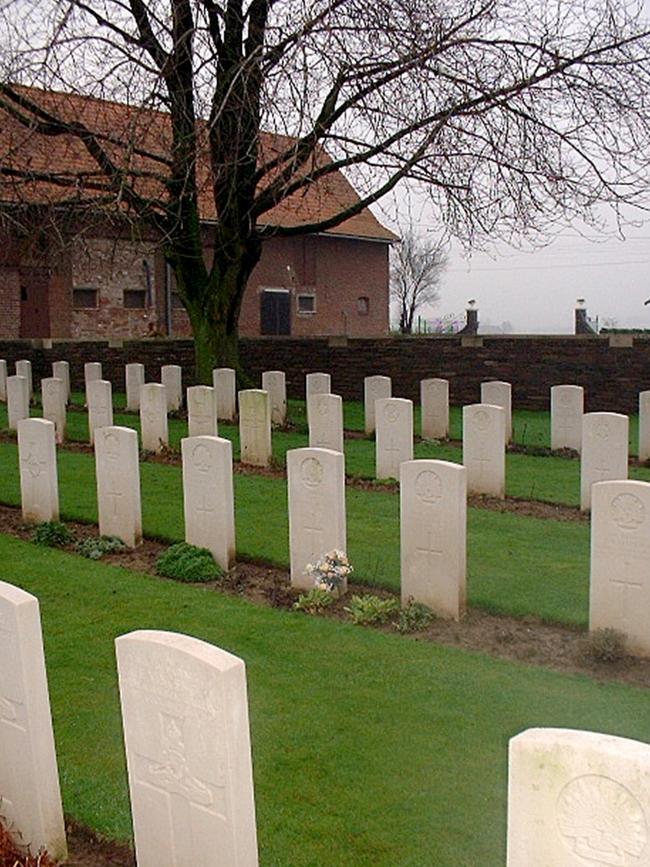100 Days of Heroes: Family man Charles Cowen fell in Belgium at the end of his year in the army
CHARLES Cowen’s year in the army would take him from home at Cygnet to England and then France before falling in Belgium.

Tasmania
Don't miss out on the headlines from Tasmania. Followed categories will be added to My News.
CHARLES Cowen was born at Gardners Bay in the Port Cygnet municipality in August 1883, one of the 10 children of Richard and Emma Cowen.
He had attended the Gardners Bay State School with his brothers and sisters, and, following the family tradition, he became a mill hand and contractor after leaving school.
In April 1906 he married the very patriotically named Brittania (better known as Brightie) Pregnell and together they had six children.
By 1916 the number of men volunteering for the AIF had dropped and married men were being encouraged to enlist.
On July 4, 1916, just three months after the birth of his youngest child, Charles enlisted with Tasmania’s own 40th Battalion, aged nearly 33.
He arrived in England in December that year and transferred to France on April 1917.
MORE 100 DAYS OF HEROES:
ARTIST KEITH ELTHAM’S PROMISING LIFE CUT SHORT
BERT SCURRAH WENT FROM FRONT PAGE TO FRONT LINE
ROBERT THORPE AND HAZEL OUTTEN’S LOVE STORY

On the evening of July 23, 1917, near Messines in Belgium, Charles and other men of the 5th Platoon were cable digging at night as part of a working party.
The party was fired on and Charles was hit in the back by a machinegun bullet as he left the trench. He was killed instantly.
Eyewitness reports said Charles had been shot through the heart. Unlike some of the reports provided to the Red Cross at the time, many of the witnesses to Charles’ death knew him personally and had travelled with him from home.
One of them, Private L. Sullivan, of Oatlands, said he was working with Charles on the fatal night.
“We were in the open a little behind our front trenches near Messines and were exposed to machine gun fire,” Pte Sullivan reported.
“He was killed by a machinegun bullet. I saw him lying dead. The bullet went in at his back and I think through his heart.
“He was, I think, killed instantly. I believe he was buried somewhere near Messines. He was in the same Company as myself.”
Charles’ grave is in the Kandahar Farm Cemetery, between Ypres and Armentieres in Belgium.
Back home, his death was mentioned at a meeting of the Cygnet Municipal Council and a motion of sympathy for the relatives was passed by the council.
The Huon Times reported on August 14, 1917, “News has come to hand to the relatives of Pte. C.W. Cowen, that he has been killed in action. Prior to his enlistment Private Cowen was
a lifelong resident of Cygnet, usually engaged in mill work. He was of a quiet, retiring disposition and leaves a small family.”

Charles was not the only member of his family to join up, as his brother Thomas also served with the 40th Battalion, Henry was with 12th Battalion, and Joseph was rejected as being underage and needing his parent’s permission which they would not give.
He also had a brother-in-law, farmer Sydney George Pregnell, from Port Cygnet, who died of wounds received in action in France in September 1918.
In June 1917, Charles had named his wife Brightie as the sole beneficiary of his estate. By that time she was living at 5 King St, Sandy Bay.
Two months after his death, the army awarded a pension to Brightie and her sons Baden and Harold, and daughters Johanna and Daphne.
In March 1918 Brightie was living at New Town, when she wrote to the army to ask about Charles’ personal effects. She wrote again in April to acknowledge receipt of a parcel containing letters, cards, photos, a pipe, two religious books, knives, shaving gear, two belts, a fountain pen and a metal wristwatch.
His medals and memorial plaque were forwarded to Brightie in the early 1920s.
Private Charles Watkin Cowen is remembered at tree 391 on the Soldiers’ Memorial Avenue and on the honour board at the Hobart Town Hall.
MORE 100 DAYS OF HEROES:


